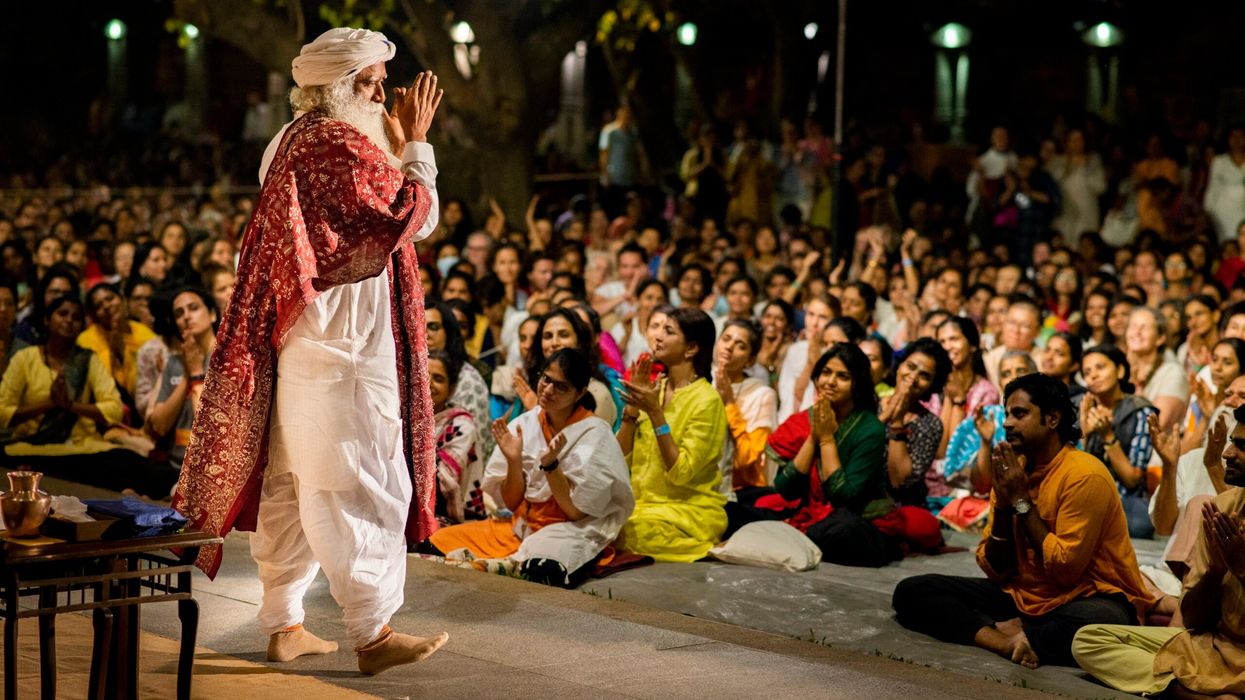INDIA has always been a land of absolute freedom when it comes to matters beyond material. It is in this context that the culture evolved. This is a culture with a multiplicity of thoughts, beliefs and pursuits.
We call this sanatana dharma, which means an eternal religion that will always be relevant. You can choose your own god – a male god, a female god, an animal god, or a tree god – whatever you want. This is known as Ishta Devata, a god of your own choice. This is the only culture which allows you this freedom.
There are seven billion people, so we can have seven billion religions. Every individual is free to see what he can relate to best at a certain point in his life. He can create a god of his own and give himself to that process, because it is not about god. It is about bringing out a certain quality in you thatmakes you reverential towards life.
The very reason religion was created was to bring out this quality in you. So, you worship a monkey, and I worship an elephant. What is the problem? It is fine. And tomorrow, if we want to exchange our gods, we can do that too. You can choose god with or without form, or even no god is alright. It is not rigid; it can change – that is why it is referred to as an eternal religion.
There is sufficient intellect on the planet right now for us to reconsider the very fundamentals of religion. Religion is an inward step. It is something very intimate that a human being does within himself. It is not something that you organise and do on the street. It is a step towards your creator.
If you just observe your own body, you can clearly see that the source of creation is within you. A step towards your creator is naturally an inward step, which you can only take by yourself. You cannot take a crowd of people inward.
Because religion has become organised and follows a system, what should have been a beautiful process has become fanaticism. The moment you identify yourself with a doctrine whose fundamental ambition is to conquer the whole world someday, or you assume that your way is the only way, then you are a fanatic. You may act in civilised ways, but as long as you nurture this thought, you are a fanatic.
In indigenous cultures, religion was never juxtaposed against the state. In the past, religion was far more important to people than it is now. Yet, there were no theocratic states; the ruler had his religion and the subjects had the freedom to follow theirs.
There was no conflict because people did not look at religion as an organised process. Unfortunately, today it has begun to get organised and has reached a point where electoral politics and national interests are poised to oppose each other.
We have a situation where politicians are openly and proudly calling themselves ‘Hindu leaders’ or ‘Muslim leaders’ or ‘Christian leaders.’ Religion is becoming a numbers game and a disguise for politics.
If this is encouraged or even allowed, there will be organised and unnatural attempts to change the demographic complexion of the nation. Whenever there are such attempts to change the dynamics of the nation’s demographics, religious or otherwise, large-scale violence will erupt. It will threaten our very nationhood.
We must understand that nationhood is just an idea. If we want to make this a living reality, we need to work sufficiently on inculcating a sense of citizenship at all levels of the population. We must realise that we are citizens of a nation first, and religion comes later. Only then will we have the ability to respond to any challenging situation.
Otherwise, every time we are challenged as a nation, people will not know which way to go. If we fail to handle this without the needed balance, the polarisation of the nation on religious grounds will become a widespread and ugly reality, for which we as a nation will pay a heavy price. It is very important that the administration and society at large, particularly the religious and spiritual movements, approach this with sensitivity and long-term vision.
May all of us have the necessary sense and wisdom to prevent our beautiful, vibrant, and inclusive culture from succumbing to mayhem caused by divisive forces.
Ranked among the 50 most influential people in India, Sadhguru is a yogi, mystic, visionary and bestselling author. He was honoured with the Padma Vibhushan, India’s highest civilian award, in 2017 for exceptional and distinguished service.




